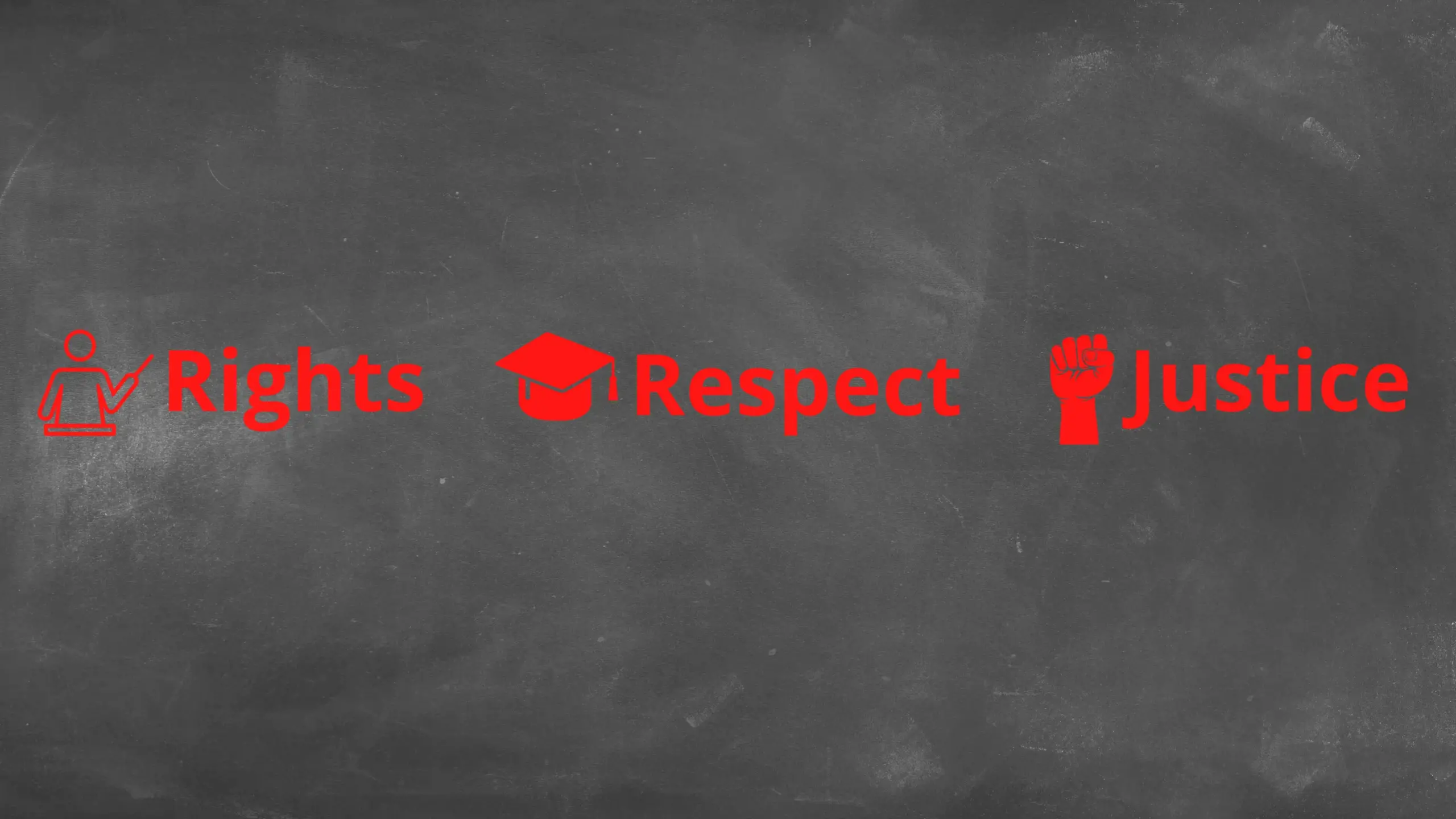CFA Members Share Painful Personal Stories Backing Up Our Bargaining Proposals

CFA’s Bargaining Team met again with the CSU last Thursday to discuss proposals for a new Collective Bargaining Agreement.
Throughout the bargaining process, the CFA Bargaining Team has put forth multiple proposals addressing structural racial and social justice issues within the CSU. The CSU has rejected each of these proposals out of hand. In this most recent meeting, our Bargaining Team invited the CSU to reconsider their stance on our anti-racist proposals, particularly those proposing changes to the role of student evaluations and the creation of an ombudsperson program as an alternative to campus police.
At the outset of the meeting, our team presented the findings of a recent study showing the existence of bias in student evaluations and, therefore, the necessity of addressing these prejudices. To demonstrate the personal impact of this issue, Black, Indigenous and people of color (BIPOC), female, and transgender faculty shared their personal experiences with biased student evaluations.
A trans faculty member particularly highlighted how his gender identity consistently comes up as a factor in student evaluations, even when his identity is entirely irrelevant to the course material or the quality of his instruction. Even in the face of this new evidence and these stories, the CSU’s response remained unchanged. The CSU team is still unwilling to consider our proposal to make evidence-based changes to ensure that all faculty are fairly evaluated.
Immediately following the CSU’s clear disinterest in addressing this structural issue, our Bargaining Team again invited the CSU to reconsider their rejection of our proposal for an ombudsperson program which would provide an alternative to police on campus. During a week that included the then-ongoing Derek Chauvin murder trial, but also the murder of Daunte Wright and the release of footage showing 13-year old Adam Toledo’s death – both at the hands of police – faculty again gave testimony to the urgent need for such a program and shared deeply personal stories that required many of them to relive past traumas.
Black faculty members shared stories about the relentless police surveillance and harassment that they have experienced throughout their lives, including in their professional lives as faculty in the CSU. Faculty recalled giving Black colleagues rides home to campus-based housing, only to have those colleagues met by campus police as they attempted to enter their own homes.
Another faculty member shared the horror of one of his students being tased and arrested – while seeking to de-escalate and leave – for the “crime” of being in his department’s building. A tale only worsened by the student’s eventual exit from the university without a degree.
“I shuddered at each faculty member’s testimony, each an attempt to awaken management from the status quo stupor of clinical, technocratic, moderate whiteness – a dominant culture that cares more for order than justice,” said Molly Talcott, Bargaining Team member and professor at CSU Los Angeles.
In a stunning statement, the CSU team’s response was that they “appreciated the feedback” and that creating this policing alternative would “require a lot on their end to figure out.” This exposes how the CSU management views the importance of racial justice.
The CSU is unwilling to put in the necessary effort to keep their BIPOC faculty and students safe from harm. We can not understand why when the CSU is presented with a concrete opportunity to make BIPOC community members’ lives safer, they are not interested in taking action. Let us make something clear: navigating daily the fear of harassment, trauma, and death at the hands of police is already “a lot to figure out” for our Black faculty and students. The CSU is not wrong — chipping away at the structural racism of our society and institutions does indeed require work. It is necessary work. We continue to urge the CSU to reconsider.
“Lived experiences matter. Our colleagues had the courage to share examples of the dehumanization evident in their treatment on our campuses,” said Steven Filling, CFA Bargaining Team member and CSU Stanislaus professor. “We desperately need CSU administration to get beyond crowing about their unconscious bias training for search committees and to work with CFA as we seek to eradicate the structural racism which makes the horrifying experiences our colleagues shared all too common.”
In addition to reiterating their rejection of CFA proposals, the CSU team also responded to a CFA counterproposal regarding grievance procedures as laid out in Article 10. CFA had previously agreed to changes proposed by the CSU increasing the length of time to respond to steps in the grievance process. This agreement is contingent upon the time for faculty to file a grievance also being extended in the same proportion. In this meeting, the CSU proposed that the length of time to file grievances be increased only from 42 to 49 days, rather than the proportionate 63 days previously proposed by CFA.
Though the CSU had originally approached our Bargaining Team with the intent of presenting two counterproposals, the courageous and moving stories from CFA members seemed to have made some impact. After a recess, CSU informed us that they were not ready to present their second counterproposal and needed more time to confer with their team. It is our hope that CSU management takes the words and lived experiences of faculty to heart and seriously consider the impact their actions have on the lives of BIPOC faculty and students as they go back to the drawing board.
Check www.CFAbargaining.org for updates on negotiations and to see proposals from CFA and the CSU.
Join California Faculty Association
Join thousands of instructional faculty, librarians, counselors, and coaches to protect academic freedom, faculty rights, safe workplaces, higher education, student learning, and fight for racial and social justice.